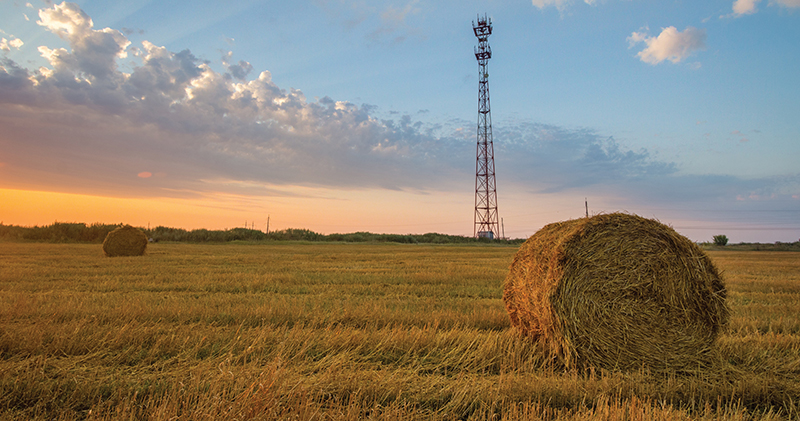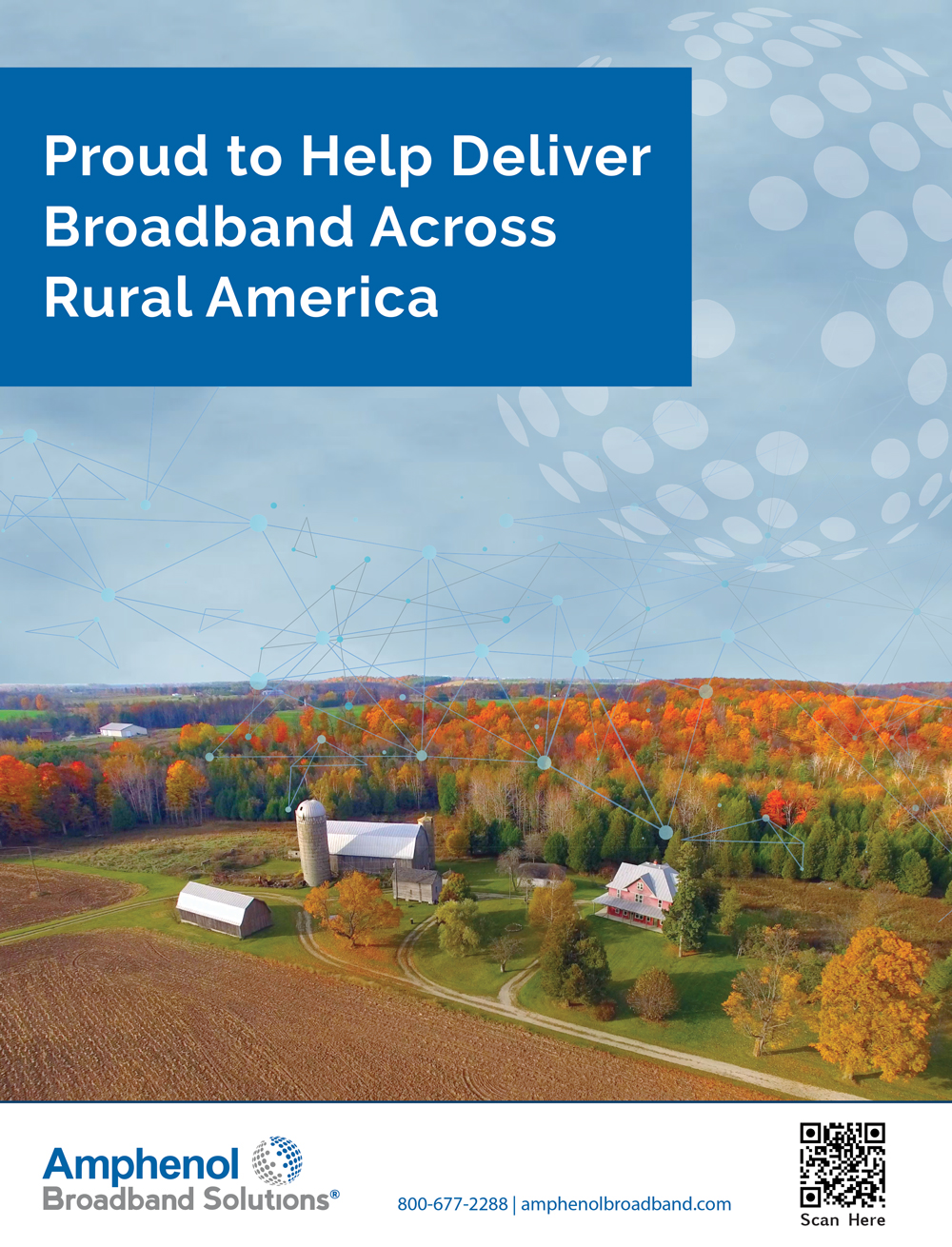Mitigating Risk in Rolling Out RDOF Projects
By Rick Sullivan
The Rural Digital Opportunity Fund (RDOF) promises to bring true broadband connectivity to America’s wide-open places and small “off the beaten path” spots. The pandemic and resulting shutdown of in-person activities has shone a spotlight on the ability of high-speed connectivity to allow the necessities of life to continue. RDOF has initiated the greatest drive towards widespread connectivity since the Communications Act of 1934.
To address this trend, service providers seek solutions that are simple, complete and proven reliable. With decades of proven value, fiber connectivity is the logical technology for rural broadband extension. Advances in fiber have made its installation straightforward and highly reliable.
Government subsidies in hand, service providers are beginning to deploy broadband service to the farthest reaches of rural America. They do this by following a familiar process of planning, engineering, procurement, construction, testing and turn up. While each
of these tasks is routine for companies that regularly build and maintain networks, the unique nature of rural networks presents challenges not normally encountered in cities and suburbs.
Successful deployments will require:
- Experienced engineering
- Reliable vendors / distributors
- Competent construction crews
- Experienced operators
Engineering
Engineering firms are lining up to help create detailed network deployment plans. Those that have experience designing networks with service drops miles apart will prove to be invaluable to providers that normally deploy in more densely populated areas.
Permitting has always taken a lot of time. Now with increased demands and smaller work forces as a result of the pandemic, timing of completion to fully capture RDOF funds may be jeopardized due to the increased permitting time and for pole owners to complete make-ready projects. Companies, are therefore, considering the more expensive approach of burying fiber to minimize permitting and make-ready delays.
Vendors / distributors
For their part, manufacturers are planning to ramp-up production to meet the coming demand. Meanwhile, distributors must stock up on the piece parts necessary to ensure smooth installation. Of course, a major risk is the ongoing supply chain challenges for anything that has a chip in it which may cause RDOF project completion delays.
Construction
Obstacles presented within the rural environment are a major challenge faced by construction crews. Routes may include everything from boulders to water crossings and even weather challenges. All must be considered to ensure that placement of cable, apparatus and other equipment can occur with a minimum of downtime. Perhaps an even greater challenge is the increased demand for well-trained labor, both skilled and unskilled, to ensure those with RDOF funds are able to meet deadlines.
Operators
While some new providers using RDOF monies may successfully construct the plant, established companies will have the advantage of already providing necessary back office support such as billing and the core transport needed to provide a full range of services.
The various elements that make up a typical rural fiber network deployment as well as strategies to plan, engineer, procure and construct such a network are well known based on decades of fiber deployment. Most everyone involved in the building of fiber networks are likely to agree that the actual network rollout will be challenged by the effects of a currently broken global supply chain. Managing design, engineering, material and labor are ongoing challenges that will be essential for a successful rural network implementation.
Once these networks are built and back office support successfully deployed, rural customers will have world class service, better than most in urban areas due to fewer capacity issues. The timing is good, as we see more and more professionals seeking refuge from the pandemic by migrating from larger urban areas.

Rick Sullivan,
VP of Strategic Accounts,
Amphenol Broadband Solutions
Rick Sullivan is VP of Strategic Accounts at Amphenol Broadband Solutions. In his 40+ years in the broadband industry, Rick has held leadership positions at service providers and now at ABS. He is a member of the SCTE Hall of Fame.
Shutterstock




